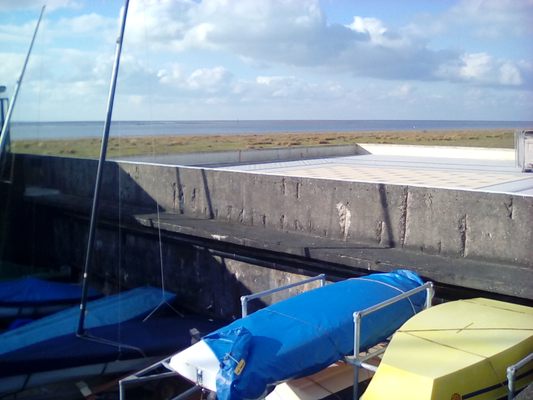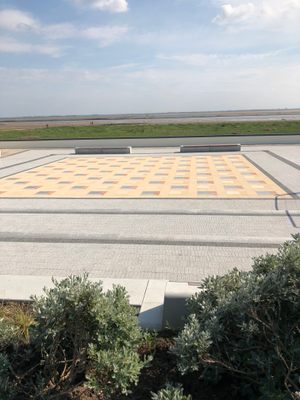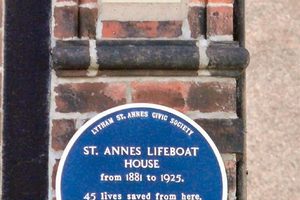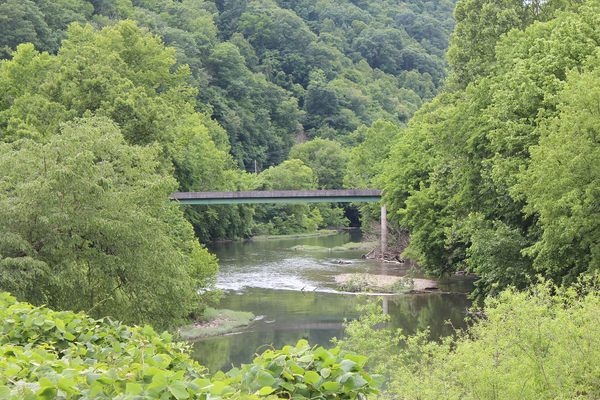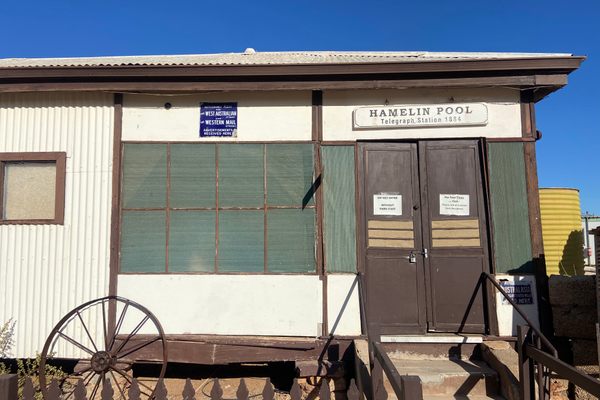About
Until the late 20th century, the only way to gather mussels was to collect them from wild mussel beds on the seashore. Along the Ribble estuary in Lytham, England (near Blackpool), three large concrete tanks were built for local shellfish collectors to store and clean their catch. The old tanks now offer an interesting reminder of a way of life that is largely lost.
The three tanks represented the three stages of cleaning used: Standing the mussels in clean sea water for a few days allowed the mollusks to void any pollutants they had ingested (at a time when the coastal waters of the U.K. were not as clean as they are today). In the heyday of the trade, mussel fishermen from as far away as Morecambe, some 20 miles away, are said to have used these cleaning tanks.
However, the advent of large-scale mussel farming replaced wild-caught mussels, and the Lytham tanks had gone out of use by the 1950s. Two of them were repurposed to form the foundations of buildings (the RNLI inshore Lifeboat Station and the Ribble Cruising Club headquarters), and parts of the original concrete structures can still be seen in the new buildings.
The third tank was used as an informal swimming pool for many years. But as of February, 2018, the old mussel tank is being converted for use as a viewing platform overlooking the Ribble estuary, which is famous for its wading birds.
Related Tags
Know Before You Go
Nearby on Lytham Green is a very attractive old windmill, now a museum, and the old lifeboat station from the days when Lytham housed a full size lifeboat. The RNLI,which runs Britains lifeboat service is a charity (it has no government funding), and operates a fundraising shop from the inshore lifeboat station.
Published
March 5, 2018

